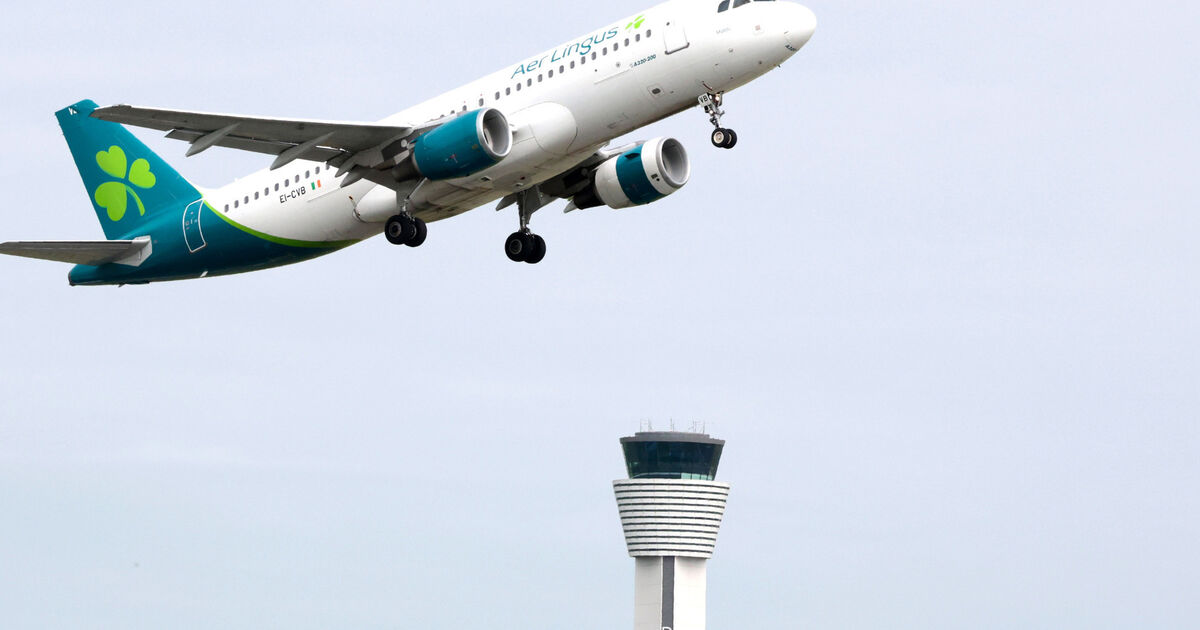The High Court must pause the effects of a Dublin Airport passenger cap to prevent “imminent, permanent and irreparable harm”, Aer Lingus lawyers have said.
Seeking urgent intervention from the court on Friday, Paul Sreenan SC said the airline expected to lose €84m in Revenue next year and up to €130m in 2026 due to Irish Aviation Authority’s imposition of caps on traveller numbers.
He said the company was heavily reliant on “use them or lose them” take off and landing slots at the airport, 80% of which must be availed of in a season to secure them again the next year.
Airlines have a right under EU law to these “historic” slots, and this “deserves to be protected” but would be permanently lost if the cap takes effect, said Mr Sreenan.
Aer Lingus, Ryanair and a consortium of American airlines are urging the court to rule in their favour ahead of the allocation of Dublin Airport slots to carriers in six days’ time by ACL (Airports Coordination Ltd).
If granted, the stay would only apply to the part of the recent IAA decision that limits passenger numbers to 25.2 million for the summer season that runs from late March and October.
An earlier IAA decision limiting carrier seats to 14.4 million over the 2024 winter period (from now to March 2025) is already subject to High Court challenges by Ryanair, Aer Lingus and, raising directly contrasting concerns, the Daa, which manages the airport.
The IAA is responsible for identifying and allocating an airport’s maximum available capacity in a fair and transparent way in line with an EU regulation.
In making the recent winter and summer season decisions, the body said it took account of technical, operational, environmental and local planning constraints, including An Bord Pleanála’s imposition of an annual 32 million passenger limit when Terminal Two was approved in 2007.
The IAA is neutral on the airlines’ application, while the Daa is opposed to it.
Separately, the Daa has applied to Fingal County Council seeking an increase of the 32 million limit to 40 million. A decision on this is awaited.
Mr Sreenan, instructed by McCann Fitzgerald solicitors, said the planning condition was not a relevant consideration for the IAA in assessing capacity.
The IAA’s application of the condition for the first time for its winter 2024/25 decision marked a “significant change to the status quo”, he said, adding his team did not believe any other aviation regulator had adopted a planning condition when determining airport capacity.
Enforcement of the 32 million passenger planning condition was a matter for the local planning authority, Fingal County Council, or the Daa, rather than the IAA, whose decision guides subsequent slot allocations by the ACL, he said.
If the council or the Daa take steps to enforce the planning condition “so be it”, he said, adding: “Our concern is slots.”
Seeking the same order, lawyers for Ryanair said the loss of historic slots at Dublin Airport would affect its right to retain historic slots at 67 other European destinations, as the “use it or lose it” requirement relates to both takeoff and landing slots.
If the court refuses to pause the IAA cap decision, the airlines will never recover their historic slots, said Martin Hayden SC, instructed by Arthur Cox solicitors. He said the IAA was incorrectly acting as “judge, jury and executioner” on the question of whether there was a breach of the 2007 planning condition.
Dominic McGrath SC, representing Airlines for America, which represents US airlines, said the IAA cap would create “very significant financial losses” and the “very significant and permanent loss of slots”.
“The loss of historic slots is undercutting the very foundation of an airline’s business,” he said.
The IAA and DAA are due to begin their submissions to Mr Justice Barry O’Donnell on Friday afternoon. The application hearing is scheduled to conclude on Friday.

